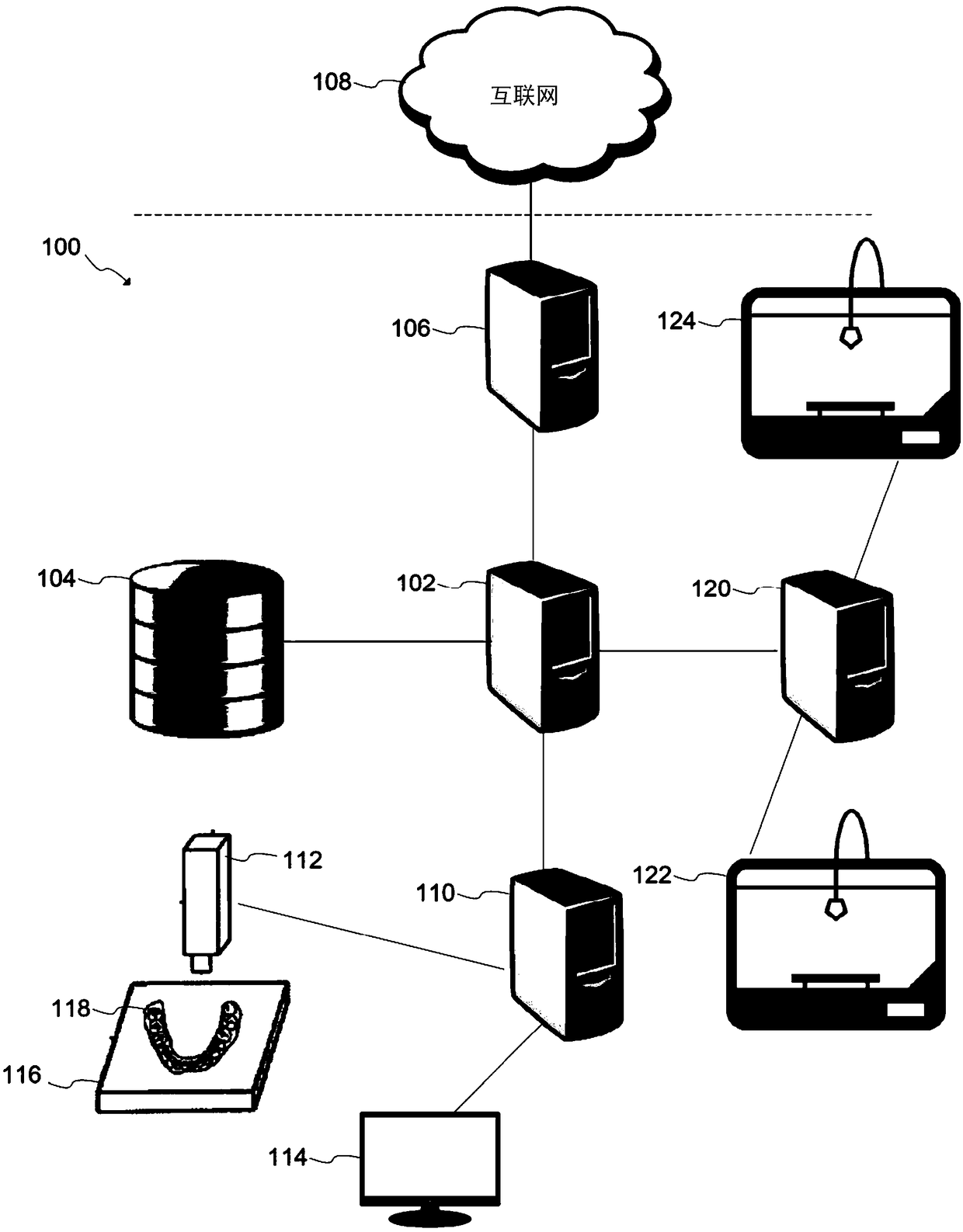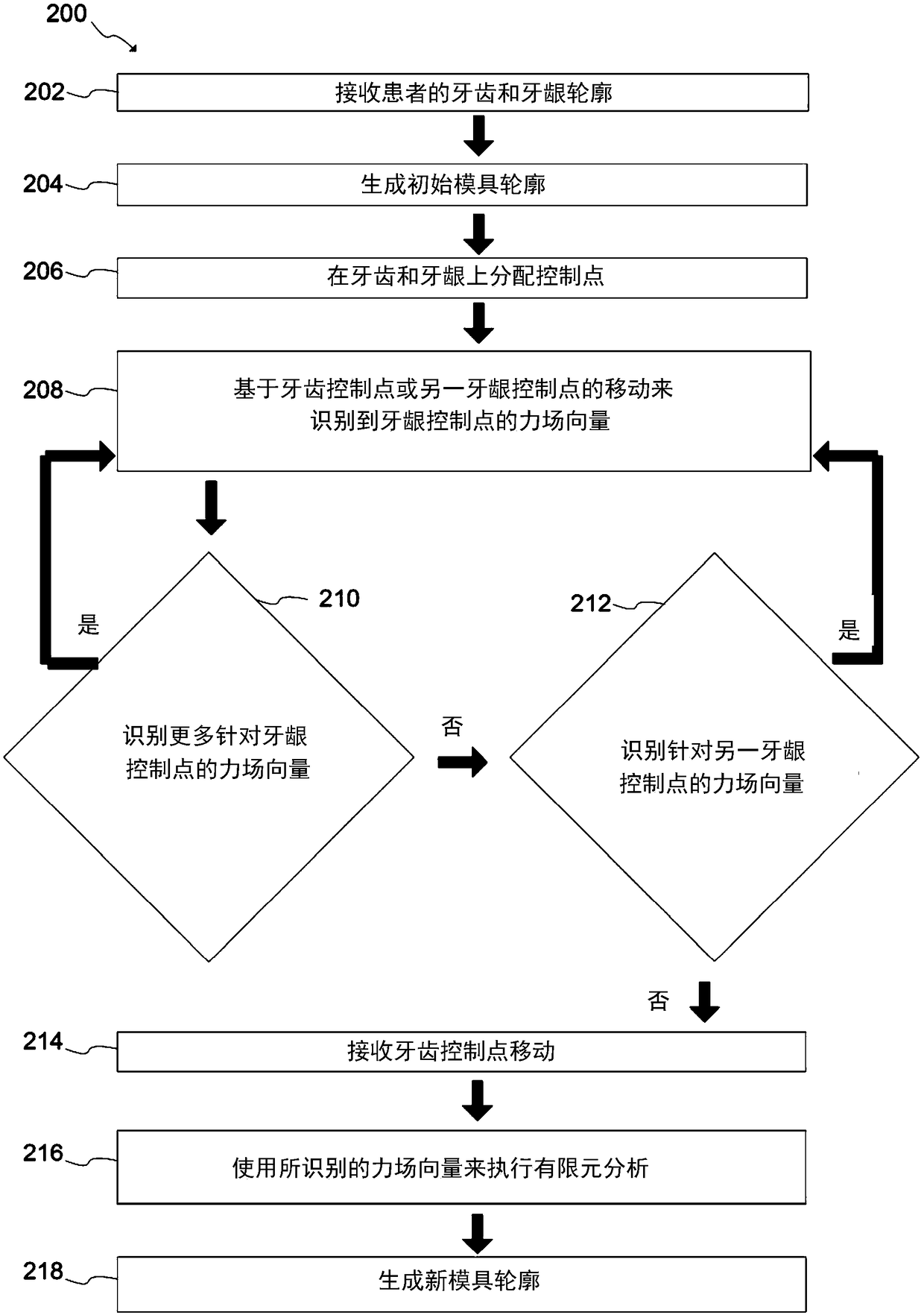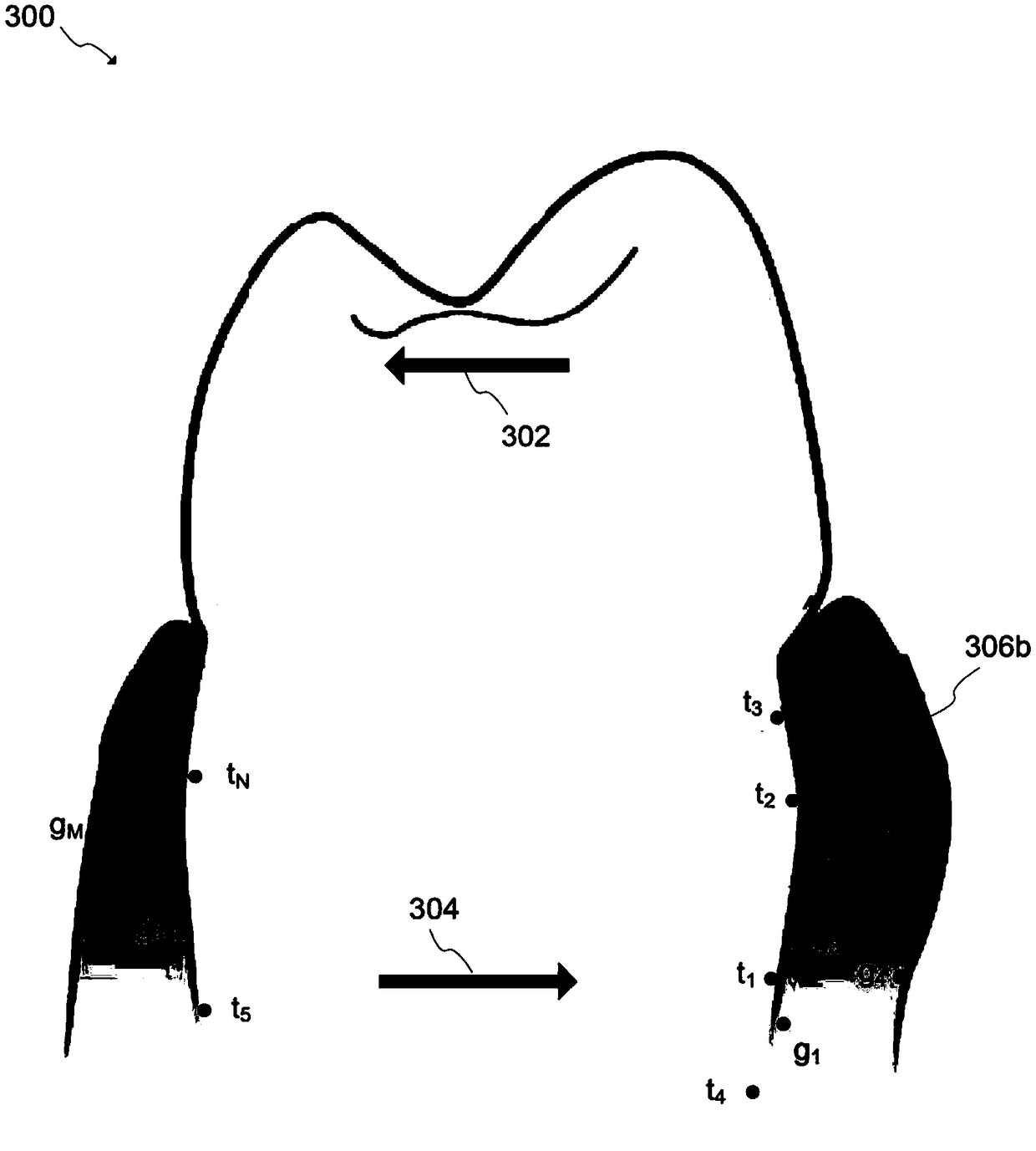Virtual modeling of gingiva adaptations to progressive orthodontic correction & associated methodology of appliance manufacture
A gingival and mold technology, which is applied in the quasi-standard field, can solve the problems of inaccurate update of gingival shape and poor fitting of aligners.
- Summary
- Abstract
- Description
- Claims
- Application Information
AI Technical Summary
Problems solved by technology
Method used
Image
Examples
Embodiment Construction
[0019] The present application describes systems and methods for generating a digital model that allows for adaptation to the shape of a patient's gums during orthodontic treatment. Initial tooth and gingival contours were obtained from 3D scans of patient tooth and gingival replicas or CT scans of patient tooth and gingival impressions. The initial profile and desired tooth movement are sent to software that generates new tooth and gum profiles. The software distributes force vectors between multiple gingival control points and tooth control points based on collected statistical and anatomical data. Each force vector represents the effect of tooth / gingival control point movement on adjacent gingival control points. By integrating the desired tooth movement with the initial contour, the software is able to generate a new contour including the desired tooth movement and the new gingival topology. The new outline can be sent to a 3D printer to make a new mold.
[0020] figur...
PUM
 Login to View More
Login to View More Abstract
Description
Claims
Application Information
 Login to View More
Login to View More - R&D
- Intellectual Property
- Life Sciences
- Materials
- Tech Scout
- Unparalleled Data Quality
- Higher Quality Content
- 60% Fewer Hallucinations
Browse by: Latest US Patents, China's latest patents, Technical Efficacy Thesaurus, Application Domain, Technology Topic, Popular Technical Reports.
© 2025 PatSnap. All rights reserved.Legal|Privacy policy|Modern Slavery Act Transparency Statement|Sitemap|About US| Contact US: help@patsnap.com



